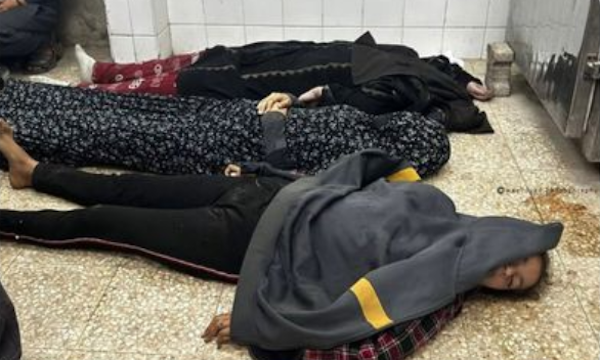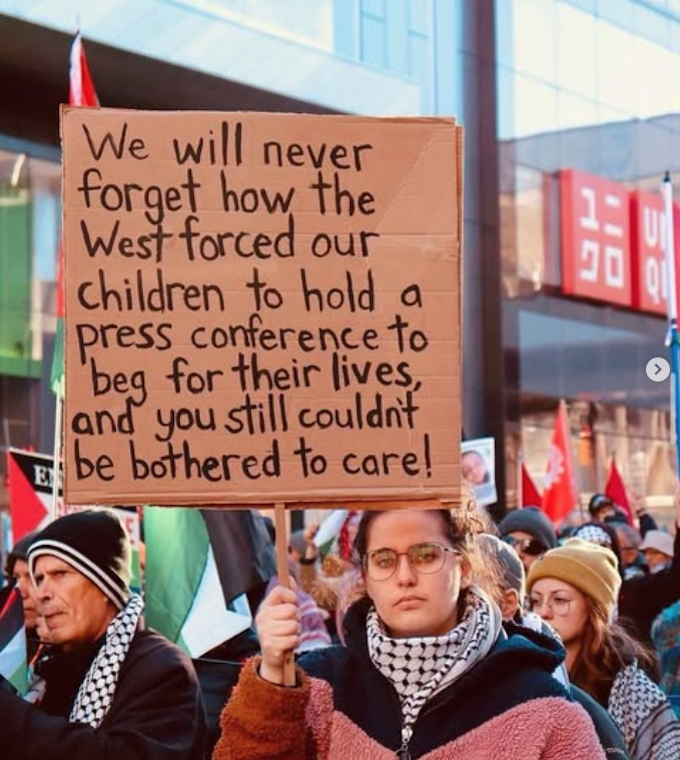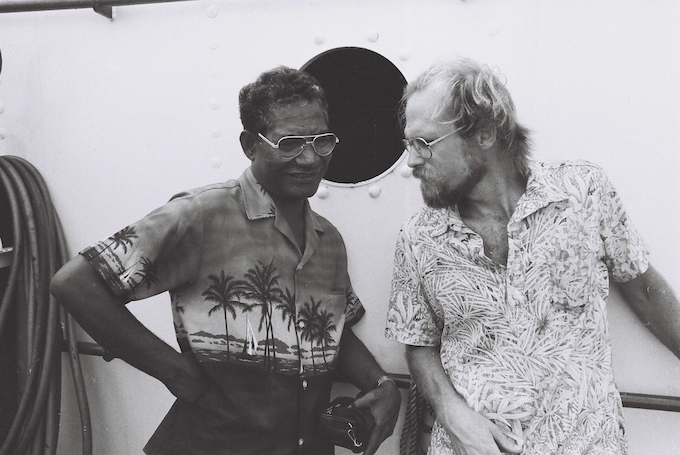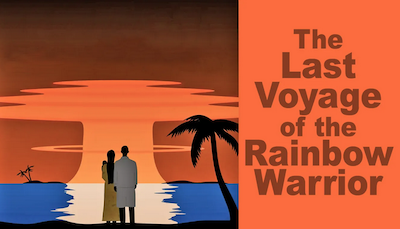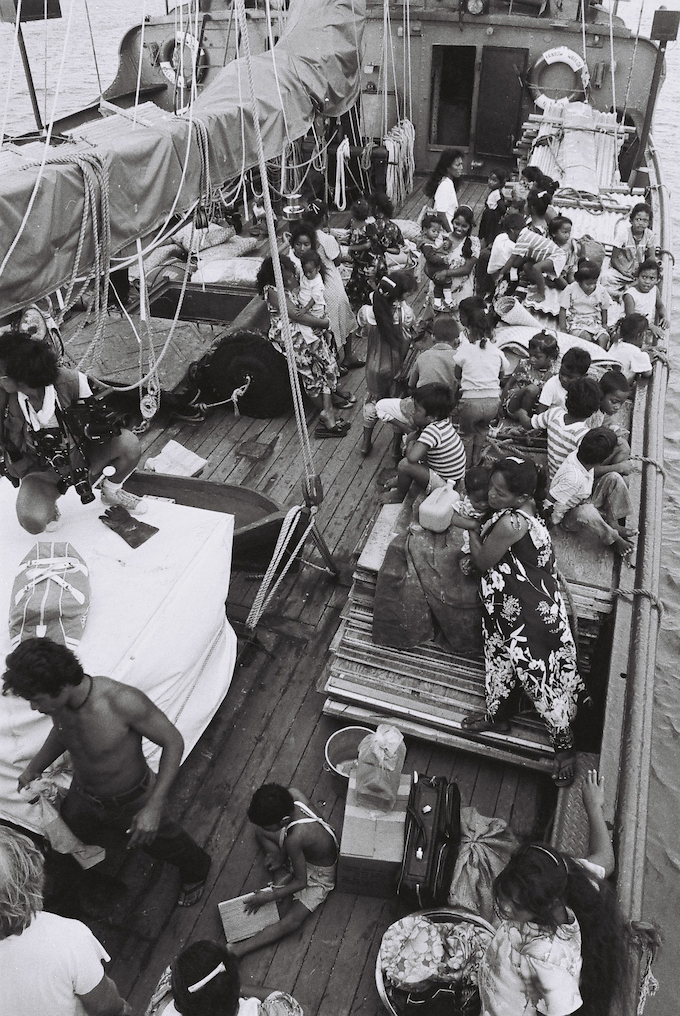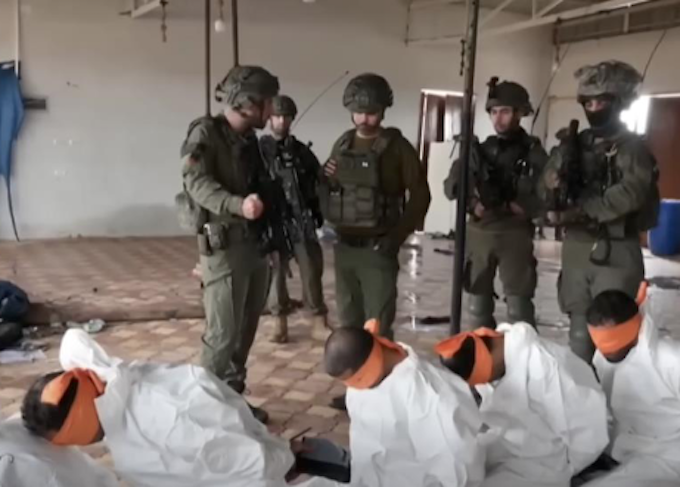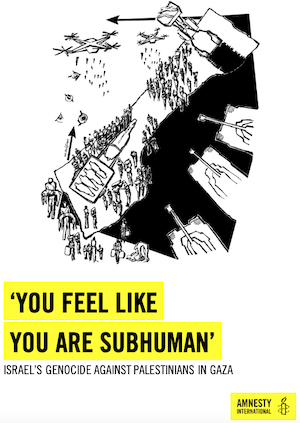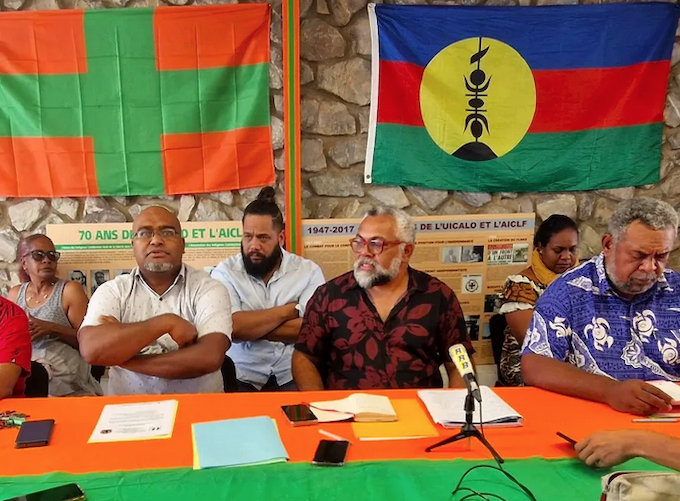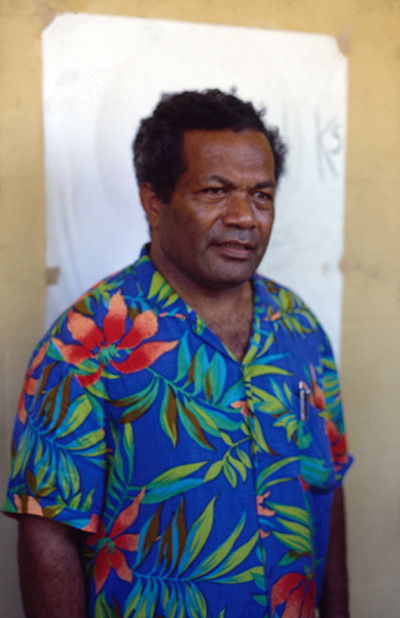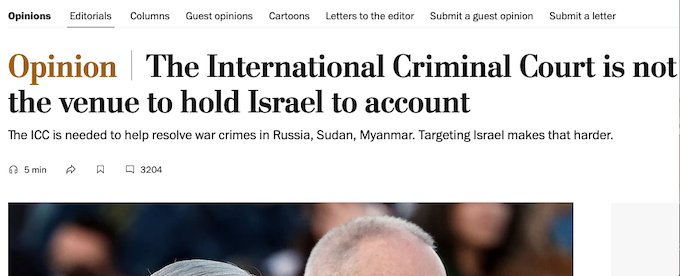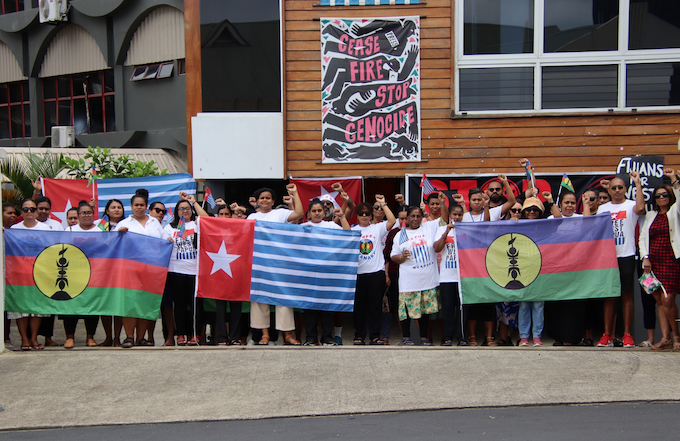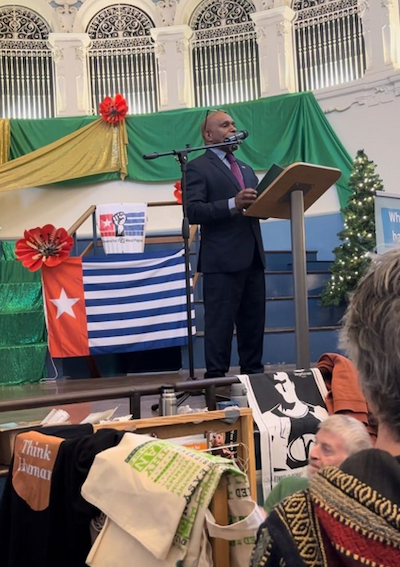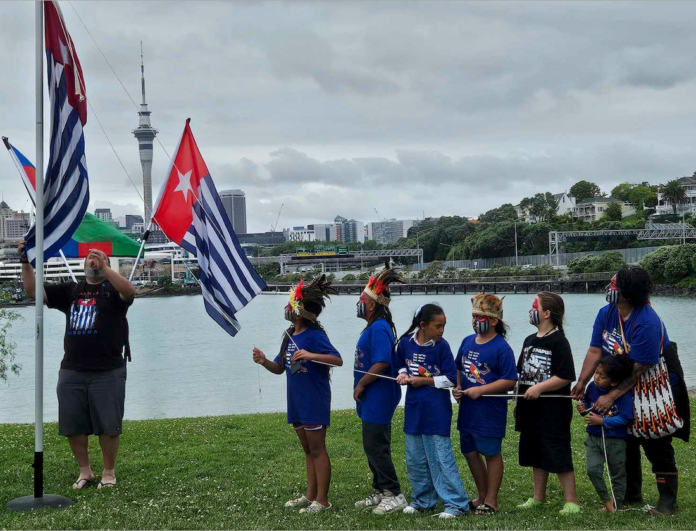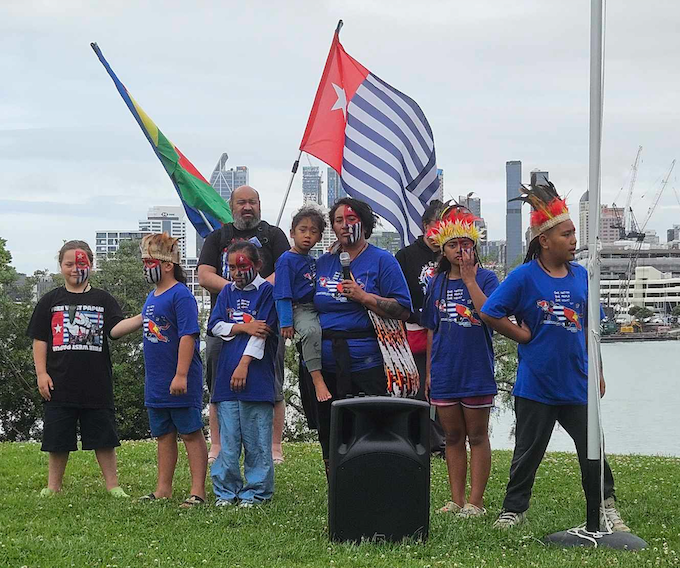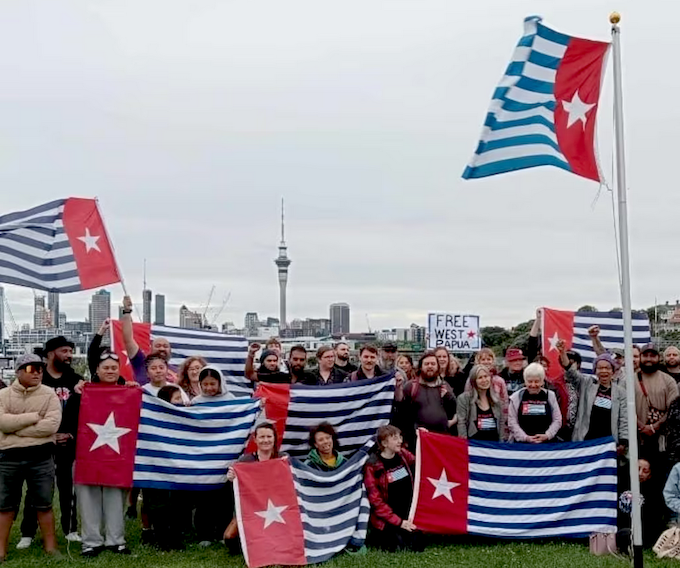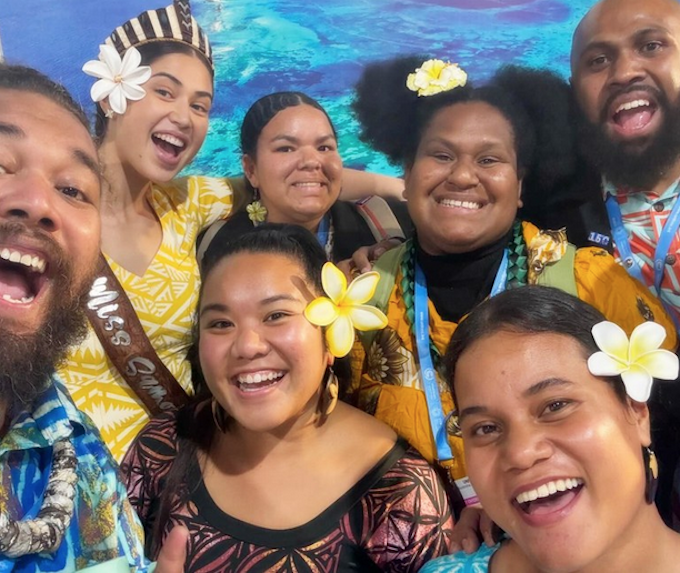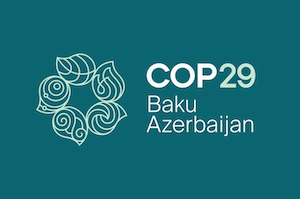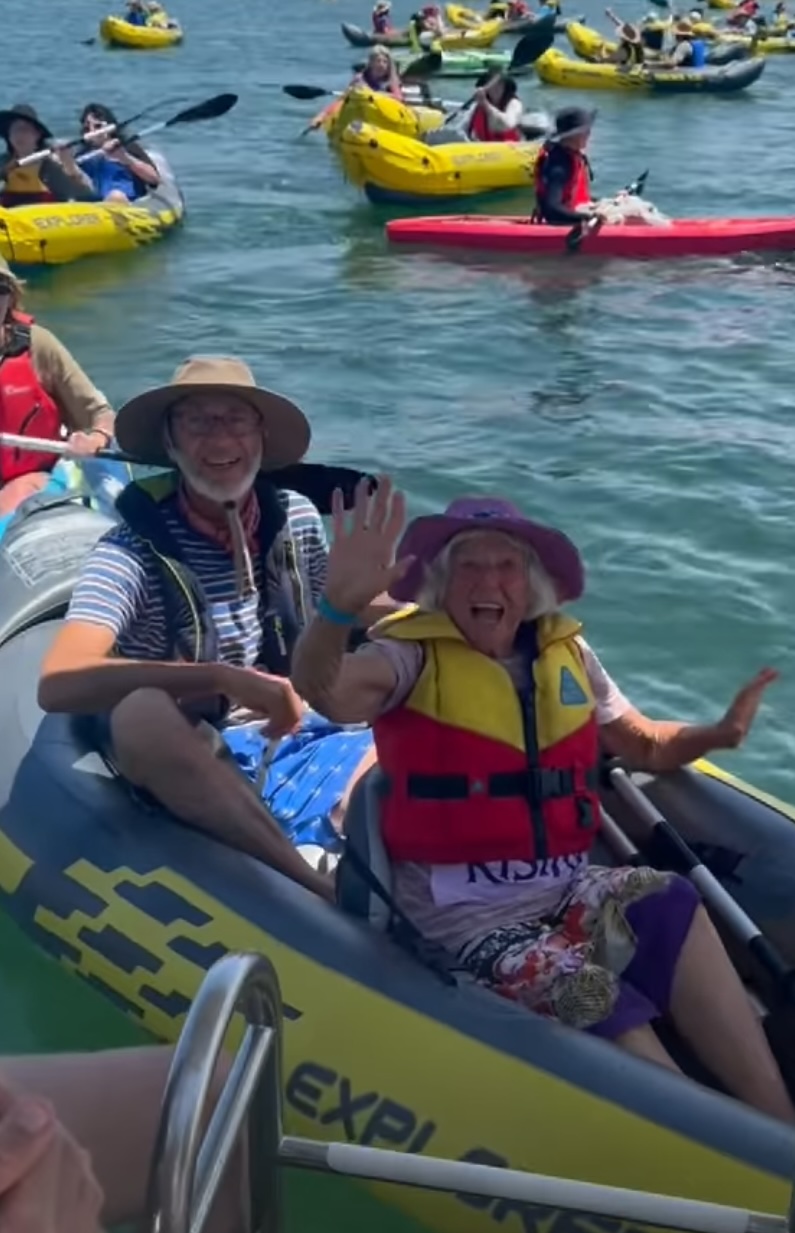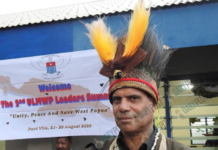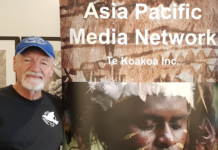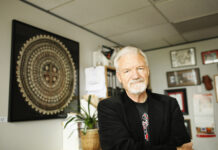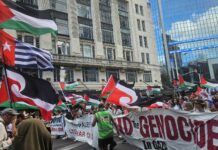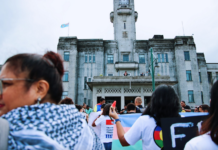By David Robie
Amnesty International officials at a rally in Auckland today doubled down on their global report this week accusing Israel of genocide and called on Aotearoa New Zealand to take more action over the atrocities in the besieged enclave of Gaza.
The global human rights movement’s 296-page fully documented report says Israel has “unleashed hell and destruction on Palestinians in Gaza brazenly, continuously and with total impunity”.
The allegations have enraged the Tel Aviv government and stirred the unaffiliated Israeli chapter of Amnesty International to distance itself from the “genocide” allegation while admitting “serious crimes are being committed in Gaza, that must be investigated”.
- READ MORE: Israel has ‘unleashed hell and destruction’ in Gaza genocide, says Amnesty investigation
- More than 50 killed as Israel hits Gaza refugee camp, vicinity of hospital
- Video reports
- Other Gaza genocide reports
Speaking at the weekly rally in Te Komititanga Square in the heart of Auckland today, Amnesty International Aotearoa’s people power manager Margaret Taylor said the report was “irrefutable”.
“Israel has committed and is — this very minute — committing genocide against Palestinians in the occupied Gaza Strip,” she said and was supported with loud shouts of “shame, shame!”
Al Jazeera reports that 50 people were killed in the latest Israeli attacks on central Gaza’s Nuseirat refugee camp — in which the death toll included six children and five women — and the Indonesian Hospital in northern Gaza’s Beit Lahiya district.
The report examines in detail Israel’s violations in Gaza over nine months between 7 October 2023 and early July 2024.
Israel’s genocide against Palestinians. Video: Amnesty International
‘Firsthand accounts, satellite photography’
“Amnesty International interviewed hundreds of people with firsthand accounts. We analysed photos and video footage of the devastation, the remains of weaponry, corroborated with satellite photography, and we reviewed a huge range of data sets, repirts and statements by UN agencies, humanitarian organisations, human rights groups, and senior Israeli government officials and military leaders,” said Taylor.
“As I said before, this is irrefutable.
“This is genocide. And it must stop now,” she said.

“With this evidence we are demanding that all those accused of genocide be brought to justice. Decades of impunity must stop.
“We have to use all the tools at our disposal – the International Criminal Court, the International Court of Justice, extraterritorial jurisdiction – to ensure that those accused of genocide, crimes against humanity and war crimes are brought to justice.
“We must ensure that perpetrators have nowhere to run and nowhere to hide.”
The Amnesty International report said that the “atrocity crimes” against Israelis by Hamas on 7 October 2023, which triggered the current war — although brutal repression against the Palestinians has been extensively reported since the Nakba in 1948 — “do not justify genocide”.
The publication of the report has been welcomed around the world by many humanitarian and human rights groups but condemned by Israel and criticised by its main backer, the United States.
In a statement, the Israeli Foreign Minister claimed: “The deplorable and fanatical organisation Amnesty International has produced a fabricated report that is entirely false and based on lies.”

Last month, the international Criminal Court (ICC) issued arrest warrants for Israel Prime Minister Benjamin Netanyahu and former Foreign Minister Yoav Gallant for alleged war crimes and crimes against humanity.
Margaret Taylor said: “The wheels of international justice have finally caught up with those who are alleged to be responsible for war crimes and crimes against humanity. This is an historic breakthrough for justice . . .
“That’s a start. Prime Minister Netanyahu is now officially a wanted man.”
The International Court of Justice (ICJ) is also investigating Israel over “plausible genocide” in a case brought by South Africa and supported by at least 18 other countries.
“It is our duty to bear witness to the ongoing carnage and to name it what it is: genocide.”
We speak to @amnesty researcher Budour Hassan about Amnesty’s new report, which for the first time, diagnoses Israel’s conduct as a genocide. pic.twitter.com/VQ4wLWNgfr
— Democracy Now! (@democracynow) December 6, 2024
Israel’s actions had brought Gaza’s population to the “brink of collapse”, said the Amnesty International report.
“Its brutal military offensive had killed more than 42,000 Palestinians [now more than 44,000], including over 13,300 children, and injured over 97,000 more, by 7 October 2024, many of them in direct or deliberately indiscriminate attacks, often wiping out entire multigenerational families.
“It has caused unprecedented destruction, which experts say occurred at a level and speed not seen in any other conflict in the 21st century, levelling entire cities and destroying critical infrastructure, agricultural land and cultural and religious sites.
“It thereby rendered large swathes of Gaza uninhabitable.”

NZ needs to take action
Taylor told the rally that New Zealand needed to take more action over the genocide, such as:
- Publicly recognise that Israeli authorities are committing the crime of genocide and commit to strong and sustained international action;
- Ban imports from illegal settlements as well as investment in companies connected to maintaining the occupation; and
- Do everything possible to facilitate Palestinian people seeking refuge to come to Aotearoa New Zealand and receive support.
In RNZ’s Checkpoint programme on Thursday, Amnesty International Aotearoa’s advocacy and movement building director Lisa Woods said the organisation had worked to establish the intent behind Israel’s acts in Gaza, adding that they meet the definition of genocide.
The series of air strikes analysed in the report had hit civilian homes in densely populated urban areas.
“No evidence was found that any of these strikes were directed at a military objective,” she said.
“The report found that the way these attacks were conducted is that they were conducted in ways that were designed to cause a very high number of fatalities and injuries among the civilian population.”
Today’s Palestine rally also devoted part of its activities to preparing a series of on-the-spot submissions to the Treaty Principles Bill amid many “Kill the bill” tee-shirts, banners and placards.
Dr David Robie is editor of Asia Pacific Report and Café Pacific. This report was first published at Asia Pacific Report.



